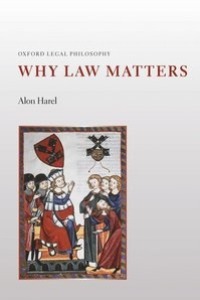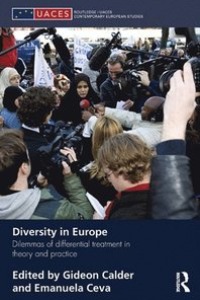
Liknande böcker
Criminal Law and Cultural Diversity
Bok av Will Kymlicka
The idea of a cultural defense in criminal law is often ridiculed as "e;multiculturalism run amok "e;. To allow someone charged with a crime to say "e;this is my culture "e; as an excuse for their action seems to open the door to cultural relativism, to jeopardize the protection of fundamental rights, and to undermine norms of individual responsibility. Many scholars, however, insist that cultural evidence is appropriate, indeed essential, for the fair operation of thecriminal law. The criminal law is society's most powerful tool for regulating behaviour, and just for that reason we apply strong safeguards to ensure that criminal sanctions are applied in a fair way. When it comes to individuals, we want our rules for judging responsibility and punishment to track theactual blameworthiness of the specific individual being prosecuted for a specific action in the past. Cultural evidence may help improve our judgements of individual blameworthiness and desert; indeed, cultural evidence might even be necessary if the practice of punishing individuals is to be legitimate and equitable. According to its proponents, the use of cultural evidence when judging individual blameworthiness is a natural extension of the logic of existing criminal law doctrines regardingdefences, and of the logic of current philosophical theories of responsibility and agency. This volume brings together scholars of both criminal law and philosophy to rigorously assess these ideas. Each of the chapters addresses a different dimension of the issue, from a range of perspectives, with varying degrees of sympathy or scepticism regarding cultural defences. The result is an important and original contribution to the literature. It explores why cultural diversity raises distinctive challenges in the criminal law context, not found in other domains of the multiculturalismdebate, while also exploring how this particular context raises fundamental issues of agency and responsibility that are at the heart of broader debates in legal, social and political philosophy.
2 utgåvor
Välj utgåva
Criminal Law and Cultural DiversityEngelska - Inbunden
ISBN: 9780199676590
ISBN: 9780199676590
Criminal Law and Cultural DiversityEngelska - E-bok
ISBN: 9780191664304
ISBN: 9780191664304
Visa pris inkl. frakt Inkl. frakt
Amazon.se
Nybliven Amazon Associate
Klicka på "Till butik" för att se priset
Finns i lager
https://www.amazon.se/gp/product/0199676593
Finns i lager
Criminal Law and Cultural Diversity
591 kr
Finns i lager
Criminal Law and Cultural Diversity
879 kr
Finns i lager
Criminal Law and Cultural Diversity
803 kr
Finns i lager
Criminal Law and Cultural Diversity
803 kr
Finns i lager









